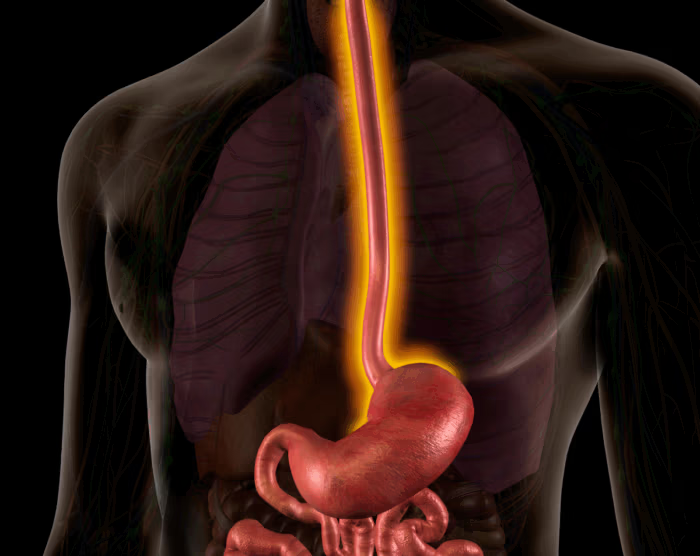
In fact, over the past few decades, cases of esophageal adenocarcinoma have skyrocketed in the United States. While older men are most at risk, this type of cancer doesn’t always follow the rules anymore. That’s exactly why you need to understand what’s driving this increase; and more importantly, what you can do to protect yourself.
There isn’t just one reason. Instead, several major factors are working together to drive this trend.
Acid reflux, or GERD (gastroesophageal reflux disease), is one of the biggest culprits. When stomach acid repeatedly washes up into the esophagus, it causes irritation and inflammation. Over time, that damage may lead to Barrett’s esophagus, a precancerous condition where the cells in the esophagus actually begin to change.
And here’s the kicker—many people with Barrett’s don’t even know they have it.
Carrying extra weight, especially around the belly, increases pressure on the stomach and worsens reflux. Moreover, fat tissue releases inflammatory chemicals that may increase cancer risk in general. As obesity rates climb, so does the risk for esophageal cancer.
Processed foods, alcohol, smoking, and low-fiber diets all increase risk. Meanwhile, very few people eat enough fruits, vegetables, and whole grains. These lifestyle habits quietly add up over the years; and unfortunately, so does your cancer risk.
Esophageal cancer often hides in plain sight. Because it doesn’t always cause symptoms in the early stages, many cases go undetected until it’s too late. That’s a huge reason survival rates are still so poor. However, this doesn’t have to be your story.
If you’ve had heartburn more than twice a week for several months, it’s time to speak up. Chronic reflux isn’t just uncomfortable; it’s a red flag. Don’t ignore it. Instead, talk to your doctor and ask about testing options.
Ask about Barrett’s esophagus.
If you have reflux and you’re over age 40, especially if you’re male, overweight, or have a family history, get evaluated. One non-invasive test, called EsoGuard, can detect changes in your esophageal cells without needing a scope. It’s quick, easy, and covered by many insurance plans.
Make some key lifestyle changes.
Even small shifts in your habits can lower your risk. Try to:
- Lose extra weight gradually
- Quit smoking for good
- Limit alcohol
- Avoid eating late at night
- Choose whole, real foods more often
Over time, these choices can add up in powerful ways.
Get screened when appropriate.
While there’s no universal screening guideline for esophageal cancer yet, people with reflux and other risk factors shouldn’t wait for symptoms to show up. Early action saves lives.
Esophageal cancer is rising; but so is your power to stop it. You don’t need to live in fear, but you do need to pay attention. By staying informed, managing reflux, and choosing preventive care, you take control of your story.
The earlier we catch problems, the more options we have. So don’t wait. Ask questions. Get tested if you’re at risk. And remember, prevention is always better than treatment.
📞 (480) 331-2699
🌐 www.desertmobilemedical.com



